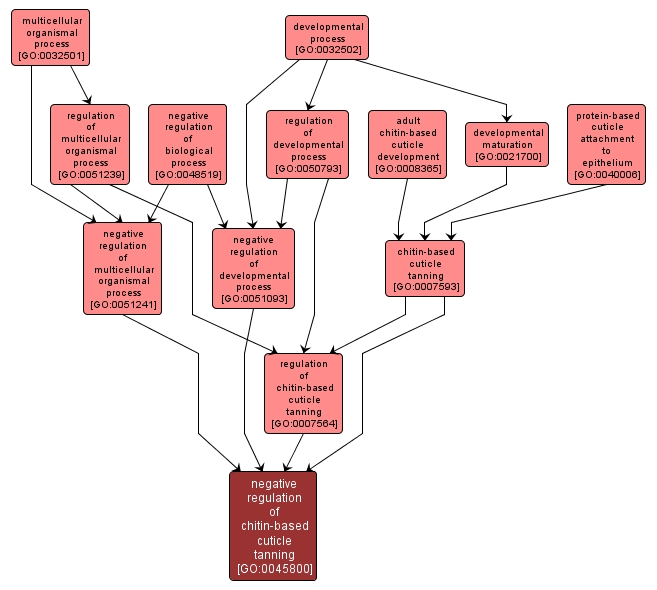GO TERM SUMMARY
|
| Name: |
negative regulation of chitin-based cuticle tanning |
| Acc: |
GO:0045800 |
| Aspect: |
Biological Process |
| Desc: |
Any process that stops, prevents or reduces the frequency, rate or extent of chitin-based cuticular tanning. |
Synonyms:
- negative regulation of cuticle hardening
- down-regulation of cuticle tanning
- downregulation of cuticle tanning
- negative regulation of cuticle tanning
- down regulation of cuticle tanning
- inhibition of cuticle tanning
|
|

|
INTERACTIVE GO GRAPH
|














